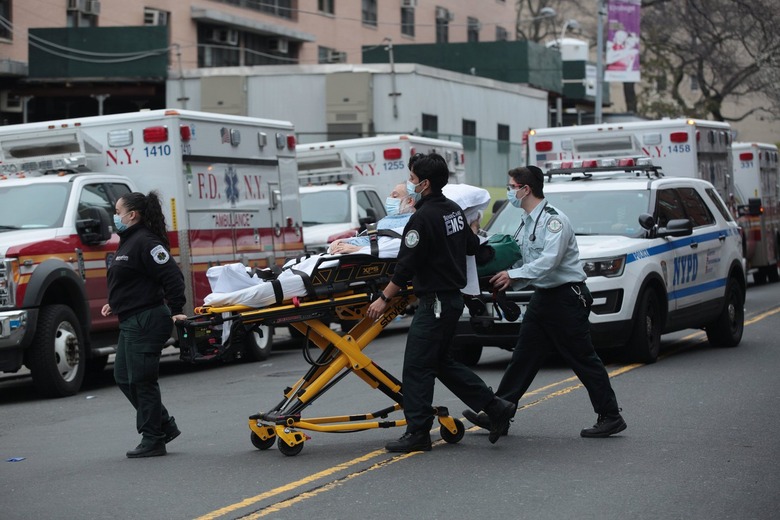Doctors May Have Found A New Way To Predict And Treat Severe Coronavirus Cases
- Future coronavirus treatment may include meds that boost the number of T-cells in the blood, which are capable of neutralizing pathogens that infect the body.
- Researchers from the UK discovered that severe COVID-19 cases show a much lower lymphocyte count than expected, and that can be a marker for COVID-19 complications.
- A trial is looking at whether interleukin 7, which can boost T-cell levels, can help patients experiencing a severe version of COVID-19 recover.
Statements from experts including the WHO and Dr. Anthony Fauci that said the novel coronavirus might never go away sound alarming, but that's not the whole story. The flu never went away and won't disappear even though we have vaccines that can provide temporary immunity. But the flu is a highly manageable infectious disease. We have various lines of treatment that work, and we all know how to treat its symptoms and when to seek medical attention. COVID-19 is still an illness that lacks a standard treatment, although doctors have been testing all sorts of therapies that work, including some promising vaccine candidates. Others are developing brand new meds that are meant to prevent the virus from replicating and provide brief periods of immunity. These are antibody-based drugs that could improve the condition of COVID-19 patients by giving a helping hand to their immune systems. Antibody-rich plasma from COVID-19 survivors proved this type of therapy works in severe cases.
Now, researchers from the UK have made a new discovery related to the immune response that could help physicians predict which COVID-19 cases will worsen. It may even offer them a way to treat those severe cases.
Doctors treating COVID-19 patients who developed life-threatening complications found they have extremely low numbers of T-cells. That's an immune cell, also known as a T lymphocyte, that is responsible for clearing pathogens like the novel coronavirus.
Other researchers found that T-cells play a significant role in killing the novel coronavirus, and some patients may already possess the kind of T-cells that can respond to the virus immediately. That could be due to a prior infection with one of the other four known human coronaviruses that can cause common colds.
Scientists from the Francis Crick Institute, King's College London, and Guy's and St Thomas' Hospital looked at the immune cells in the blood of 60 COVID-19 patients and found a crash of T-cell count, BBC explained. In a microliter (0.001ml) of blood, you should find between 2,000 and 4,000 T-cells. But that number drops to anywhere between 200 and 1,200 in severe COVID-19 cases.
Critical care consultant at Guy's and St Thomas' Hospital Manu Shankar-Hari said that about 70% of COVID-19 patients he sees in intensive care have between 400 and 800 lymphocytes per microliter of blood. "When they start to recover, their lymphocyte level also starts to go back up," he told BBC.
This was apparently a "great surprise," according to Crick Institute professor Adrian Hayday. T-cells are "trying to protect us, but the virus seems to be doing something that's pulling the rug from under them because their numbers have declined dramatically."
"The exact reason for this disruption – the spanner in the works of the T-cell system – is not at all clear to us," he said. "This virus is really doing something distinct and future research – which we will start immediately – needs to find out the mechanism by which this virus is having these effects."
The discovery gave researchers two useful ideas for the management of severe COVID-19 cases. First of all, blood tests could be used to provide early indications of what patients might develop severe complications. Aside from this "fingerprint test" for T-cells, the researchers will also study the effects of interleukin 7 (IL-7), a drug that should boost T-cell numbers and hopefully improve recovery times.
Interleukin 7 has been tested on a small group of patients with sepsis and proved to increase the production of T-cells. In the COVID-19 trial, patients with low lymphocyte count who have been in critical care for more than three days will receive the drug. "We are hoping that [when we increase the cell count] the viral infections gets cleared, Shankar-Hari said. "As a critical care physician, I look after patients who are extremely unwell, and, other than supportive care, we do not have any direct active treatment against the disease," he said, adding that the trial is extremely encouraging for UK physicians.
